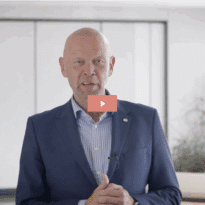In a two part article, Les Cameron, head of Technical Services, Prudential looks at the five key things to consider when advising trustees. Here, he considers the first two…
Trusts appear in many different ways. Bespoke trusts set up for a specific set of circumstances. Standard insurance company supplied trusts used for lifetime gifting. Trusts created in wills (perhaps to deal with complex family situations) or, quite commonly, where money has been left to a minor.
Trustees have many duties and responsibilities, from ensuring they legally own all assets to ensuring proper records are kept. A subset of these are the investment responsibilities which are the same for all types of trust.
Advising trustees has parallels with advising individuals but has some fundamental differences. There are five key things to consider when advising trustees.
I’ve cut these five issues into four bite sized chunks. In this first chunk, I consider what type of trust you are dealing with and what can it buy.
2. What type of trust is it?
The trust deed, or sometimes circumstances, will dictate what kind it is. The most common trusts we come across are bare, interest in possession, and discretionary. Important to know when considering investment suitability and also the taxation of any investment income and gains.
Bare trusts arise where someone will have a vested interest in the income and capital of the trust. These are commonly seen in wills where an amount is left “…absolutely to my granddaughter….” An important point to note is ensuring there are no more conditions to becoming entitled. That changes things.
As an example,” … to my granddaughter absolutely but do not pay her until she reaches 21…”. This is bare – there is no condition on her entitlement only when it is paid. Contrast with,” … to my granddaughter absolutely should she survive to age 21…” . This would be discretionary until age 21, when it becomes bare, as there is a second condition that must be met before entitlement arises.
Discretionary Trusts are relatively easy to spot. The trustees will have the power to accumulate income. However, be careful with bare trusts for under 18s, these will usually have the ability to accumulate income but they stay bare. As you can tell by the name, no one has a vested interest in any income or capital.
Which leaves us with interest in possession trusts. Here there will be one or more individuals who have an entitlement to income from the trust and there will be “remaindermen” who will get the capital. Like bare trusts, we see these most commonly in wills where a spouse will have an entitlement to income (or perhaps occupancy of a property) for life then the capital will pass to the children. The trustees may or may not have the ability to advance capital to the interest in possession beneficiary too. Look out for “life tenants”, “liferent” or someone with a “life interest”.
So, we know what type of trust we’re dealing with …
2. What can it invest in?
Trustees’ investment powers are prescribed by statute, and they have very wide investment powers under Trustee Act 2000 and the subsequent Acts applying in Scotland and Northern Ireland. Prior to 2000 the statutory investment powers were quite restrictive but the act was retrospective to trusts created before then.
But it is usual to find the investment powers covered in the trust deed and they generally, but not always, reflect the wide investment powers covered in statute.
Words along the lines of “…monies liable to be invested hereunder may be invested by my Trustees as if they were absolute owners …” or variations thereof are common. Sometimes reference is made to the “standard provisions” of the Society of Trust and Estate Practitioners applying – which basically means wide investment powers apply.
It is unusual but not impossible for a trust deed to place restrictions on what kind of investments can be bought so it goes without saying that the full deed, and any other correspondence form the settlor should be read closely.
So, we know what kind of trust we are dealing with and what investments the trustees can make.
Now the trustees have power to invest, we need to cover what their investment duties are…
I will consider these in part two.




































